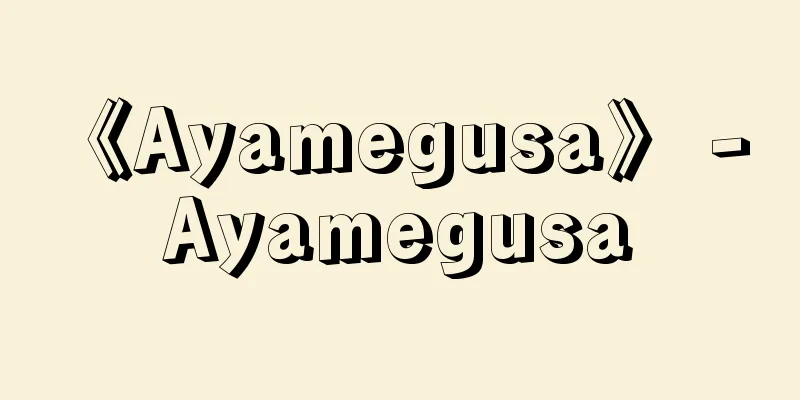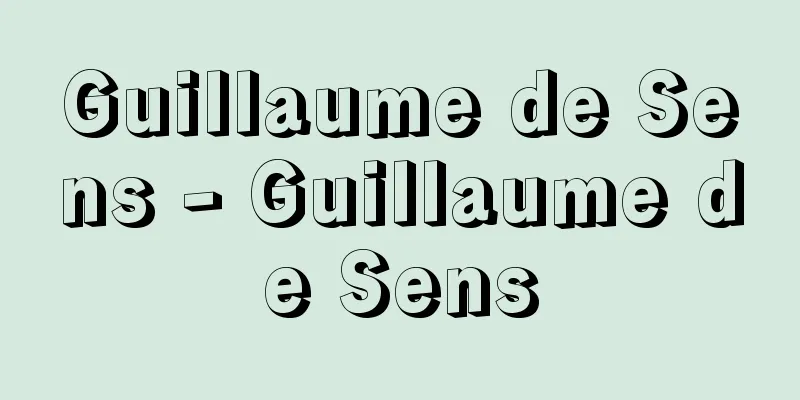About - About

|
[1] [noun] (formerly "hoto") a word expressing an approximate degree. A word showing various stages of something as a range with a certain width. [1] Expressing a temporal degree. ① The interval of time that passes. ※Man'yoshu (late 8th century) 20.4313 "Even our sleeves are wet with the blue waves as we row the boat, the sword swinging from our side, how late the night has come." ② The hour. Around that time. ※The Tales of Ise (early 10th century) 60 "The Ihetouji was so busy serving at the palace that he was not attentive to his heart." ③ The day. Time. For a while . ※The Bamboo Cutter (late 9th century - early 10th century) "In order to help me, I sent him a message for about an hour." ④ The end of a certain period of time. The limit of time. ※Kokin Rokujo (around 976-987), vol. 5 "The plovers playing in the waves of Tagonoura Bay, when will they long for it?" [2] Expresses a spatial extent. ① Approximate distance. The distance. ※Ryōiki (810-824), vol. 2 "The distance between the place where the ascetic was executed and Osa 's house is about one ri. (Shinpuku-ji Honkunshaku, chō chō )" ② On the way. Between. ※Genji (around 1001-14), Akashi "The distance of the road is also widened by the various bays." ③ Approximate location. Around. ※The Tale of Ise (before the 10th century), formerly owned by the Awa no Kuni Bunko, vol. Q "Once upon a time, I traveled far away." ④ Width, length, etc. ※Tombo (c. 974) - "The place was so narrow and crowded that I could not breathe." ⑤ The state or condition of something unfolding in a certain space. ※Genji (c. 1001-14) - Wakamurasaki - "The smoke of the little girl was so strong that it seemed to fly everywhere, and it looked so much like a painting." [3] Expresses the degree of something related to human relations. ① The degree of social or personal relationships. Status. Rank. Relationship. ※Dosa (c. 935) - January 21, 5th year of Shohei - "I don't know what these words mean, but they sound like something. If they are not spoken on a human level, I will blame them." ② Age. Also, the degree of growth appropriate to that age. ※The Bamboo Cutter (late 9th century - early 10th century) "When I became a good person, I would tie my hair up and kiss her." ③ The degree or stage of a certain range of mental activity, such as behavior, personality, character, and feelings. ※Genji (around 1001-14) Wakamurasaki "I felt so sorry for my life that I would die tomorrow, so I would kill the sparrow." ④ The degree or stage of a person's attitude, condition, skill, etc. ※The Nine Ranks of Waka Poetry (around 1009) "The upper middle rank is so beautiful that it makes me feel more than I care ." ⑤ Appearance, affability, flattery, condition, sex appeal, etc. Also, the fact that they are good. ※Ninjyohon: Haruiro Kagi no Ume (around 1838-40) 5 "I was carried away by your words ." [4] Expresses the degree of something. ① The degree of quantity. It is attached to a noun expressing quantity with the case particle "no" or "ga". ※The Bamboo Cutter (late 9th century - early 10th century) "Even if I travel a hundred thousand million ri, how can I get a bowl that is unique in India?" ② It expresses the degree of something's state, appearance, quality, etc. ※Konjaku (around 1120) 13 "Each of the two fields, about one cho in size, were entrusted to the two saints. " ③ Just the right amount. ※Kabuki Chocho-za Ume-giku (1828), Act 3 "This is not a sake that you can drink for free, so drink it in moderation ." [5] (In the form of "...nohodo") A word used to make expressions about nouns more indirect. "Please pardon my rudeness." *Botchan (1906) by Natsume Soseki, verse 9 "I hope that you will continue to treat me with the same sincerity as before." [2] [adverbial particle] (a particle form of (1)) Takes on the attributive form of a noun or conjugated verb. ① Expresses an approximate quantity. Expresses a rough number. Around. *Kakushihon Ukiyodoko (1813-23), first volume "If I go about five blocks." ② To indicate a standard for comparison, or to emphasize a degree as small or large. Around. ※Heike (early 13th century) 4: "The battle on the bridge was so fierce that fires were bursting." ※Tsurezuregusa (around 1331) 31: "When I see this snow, I can't help but feel the words of a wicked man." ③ Expresses everything within a certain range. To the extent. Only. ※Heike (early 13th century) 11: "The new Middle Counselor said, 'I have seen all there is to see, and now I will kill myself.'" ④ (With the form "nothing is said") Shows that it is the highest level. To the extent. ※Heike (early 13th century) 9: "Alas, there is nothing more frustrating than a man who wields a bow and arrow. If you are not born into a family of martial arts, you should not suffer such hardships." ⑤ Expresses the idea that the higher the level of one, the greater the results that will appear in the other. Also, in the form "the more you do...the more," it means that as one level rises, the other level also rises. The more... the more. * Gyokujinsho (1563), 6 "The higher the rank, the more bugen there are." [Glossary] (1) The noun "hodo," which expresses approximate degree, originally expressed only temporal degree, but in the late Nara and early Heian periods it also came to express spatial degree, and from around "Tosa Nikki" and "Taketori Monogatari" in the mid-Heian period, it also came to express the degree of human affairs and the degree of things. (2) The so-called conjunctive particle usage in which "hodo" becomes a formal noun and connects to the attributive form of a conjugated word (usually in the form of "hodo ni" → "hodo ni") expressed the meaning of time or continuity until this time, but from around the end of the middle Heian period, mainly due to the exchange with the synonym "ahida," it also came to have the meaning of period, time, succession, cause/reason, and adversative conjunction. In particular, the usage of cause/reason gradually increased, and in medieval colloquial language it was replaced by the conjunctive particle "ba." In the early modern period and later, it was replaced by "by ~." (3) Before the Middle Ages, no nouns were directly used as particles, and many were used as particles, such as "You can even see the pores of a person's hair" in "The Tale of the Bamboo Cutter." When a noun is used as a particle, it is still a noun, although it has become a formal noun to some extent. It was only after the Middle Ages that nouns were freely used as particles, and perhaps because of their newness, they are not used in waka poetry. (4) (2) is a particle that was derived from the later meaning of the degree of an event or thing in the process of the creation and differentiation of its meaning and usage. It first began to be used in the early Kamakura period to express an approximate degree (meaning about ~), a limit (meaning only ~), and a standard for comparing degrees in conjunction with negative words (meaning not to the extent that ~). From the end of the Muromachi period to the early Edo period, a usage expressing that a result appears in proportion to the event above (meaning more and more as ~) emerged. (5) The adverbial particle “bakari,” which has been used since ancient times to express an approximate degree or range, has declined in relative terms since the Middle Ages while coming to express a limiting meaning. This is thought to have been due to a struggle with “hodo.” Source: The Selected Edition of the Japanese Language Dictionary About the Selected Edition of the Japanese Language Dictionary Information |
|
[1] 〘名〙 (古くは「ほと」) おおよその程度を表わす語。物事の種々の段階を、ある幅を持った範囲として示す語。[一] 時間的な程度を表わす。① すぎて行く時の間。※万葉(8C後)二〇・四三一三「青波に袖さへぬれて漕ぐ舟のかし振る保刀(ホト)にさ夜ふけなむか」② 時分。ころ。※伊勢物語(10C前)六〇「宮仕へいそがしく、心もまめならざりけるほどの家刀自(いへとうじ)」③ 時日。時間。しばらくの間。※竹取(9C末‐10C初)「なんちがたすけにとて、かた時の程とてくだししを」④ ある時間帯の終わり。時の限り。※古今六帖(976‐987頃)五「田子の浦の波間に遊ぶ浜千鳥いつをほとにて恋しかるらん」[二] 空間的な程度を表わす。① 大体の距離。道のり。※霊異記(810‐824)下「行者を刑(う)ちし処と、長(をさ)が家との程(ホト)、一里許(ばかり)なり。〈真福寺本訓釈 程 ホト〉」② 途中。あいだ。※源氏(1001‐14頃)明石「みちの程も、よもの浦々みわたし給て」③ 大体の場所。あたり。※阿波国文庫旧蔵本伊勢物語(10C前)Q「むかし、をとこ、はるかなるほどに行きたりけるに」④ 広さ、長さなど。※蜻蛉(974頃)中「ほどせばく、人さはがしきところにて、いきもえせず」⑤ ある空間に展開している有様、状態。※源氏(1001‐14頃)若紫「よものこずゑそこはかとなうけぶりわたれるほど、絵にいとよくも似たるかな」[三] 人事に関する事柄の程度を表わす。① 社会的、または個人的な関係の程度。身分。分際。間柄。※土左(935頃)承平五年一月二一日「このことば、なにとはなけれども、ものいふやうにぞきこえたる。ひとのほどにあはねば、とがむるなり」② 年齢。また、その年齢相応の成長度。※竹取(9C末‐10C初)「よき程なる人になりぬれば、髪あげなどさうして、かみあげさせ、もきす」③ 言動、性格、人柄、心情など、精神活動のある範囲における程度、段階。※源氏(1001‐14頃)若紫「おのが、かくけふあすにおぼゆる命をば、何ともおぼしたらで、雀したひ給ふほどよ」④ ありさま、様子、調子など、人の態度、状態、技能についての程度、段階。※和歌九品(1009頃か)「上中、ほどうるはしくて余(あまり)の心ある也」⑤ 体裁、愛想、世辞、具合、色気など。また、それらがよいこと。※人情本・春色籬の梅(1838‐40頃)五「私(わち)きゃアお前はんの口前(ホド)に乗せられて」[四] 事物の程度を表わす。① 数量の程度。数量を表わす名詞に格助詞「の」または「が」を添えたものに付ける。※竹取(9C末‐10C初)「天竺(てんぢく)に二つとなき鉢を、百千万里の程行きたりとも、いかでか取るべき」② ものの状態、ありさま、質などの程度を表わす。※今昔(1120頃か)一三「各一町の田の同じ程なるを二人の聖(ひじり)に預けつ」③ ちょうどよい程度。※歌舞伎・蝶々孖梅菊(1828)三幕「只で飲める酒ではなし、程(ホド)に飲んで置くがいい」[五] (「…のほど」の形で) 名詞について表現を婉曲にするのに用いる語。「御無礼のほど、お許しください」※坊っちゃん(1906)〈夏目漱石〉九「何卒従前の通り御見捨なく御愛顧の程を願ひます」[2] 〘副助〙 ((一)の助詞化したもの) 名詞、または活用語の連体形を受ける。① だいたいの数量を表わす。概数を表わす。ばかり。くらい。※滑稽本・浮世床(1813‐23)初「五丁ほども往たら」② くらべる基準を示したり、あるいは程度を小さいものまたは、大きいものとして強調する。ばかり。くらい。※平家(13C前)四「橋のうへのいくさ、火いづる程ぞたたかいける」※徒然草(1331頃)三一「この雪いかが見ると、一筆のたまはせぬほどの、ひがひがしからん人のおほせらるる事」③ ある範囲の中の、すべてを表わす。かぎり。だけ。※平家(13C前)一一「新中納言『見るべき程のことは見つ、いまは自害せん』とて」④ (「もの(こと)はなし(ない)」の形を伴って) それが最高の程度であることを示す。くらい。※平家(13C前)九「あはれ、弓矢とる身ほど口惜かりけるものはなし。武芸の家に生れずは、何とてかかるうき目をばみるべき」⑤ 一方の程度が高いぶんだけ、それに見合った結果が他方に現われる意を表わす。また、「…すれば…するほど」の形で、一方の程度が高まるにつれて、他方の程度も高まる意を表わす。…につれてますます。※玉塵抄(1563)六「高い爵ほどぶげんが多ぞ」[語誌](1)おおよその程度を表わす名詞「ほど」は、本来は専ら時間的程度を表わすものであったが、奈良末・平安初期には空間的程度をも表わすようになり、平安中期の「土左日記」「竹取物語」あたりからは、さらに人事に関する事柄の程度や事物の程度をも表わすようになった。 (2)形式名詞化した「ほど」が活用語の連体形を承接する、いわゆる接続助詞的用法(多くは「ほどに」の形。→ほどに)は、この時期までは時分や継続の意味用法を表わしていたのであるが、平安中期末あたりから、類義語「あひだ」との交渉を主要因として、期間、時期、継起、原因・理由、逆接の用法をも併せ持つに至った。特に、原因・理由の用法は漸次増加して、中世口語においては接続助詞「ば」にとって替わった。それも、近世以降になると「~によって」に交替した。 (3)中古以前には体言を直接に受けるものがなく、「竹取物語」の「ある人の毛の穴さへ見ゆる程なり」などのように用言を受けるものが多い。用言を受ける場合は、やや形式名詞化してはいるものの、まだ名詞である。体言を自由に受けて助詞化するのは中世以降で、その成立の新しさ故か、和歌には用いられない。 (4)(二)は、名詞「ほど」の意味用法の新生・分化の中で、主として後発の事柄の程度や事物の程度の意から派生して助詞化したものであって、まず鎌倉初期におおよその程度を表わす用法(~ぐらい、の意)、限度を表わす用法(~だけ、の意)、打消の語と呼応して程度を比較する上での基準を表わす用法(~ほど~はない、の意)で用いられ始め、室町末から江戸初期に至って上の事柄に比例して結果が現われることを表わす用法(~につれてますます、の意)が生じた。 (5)上代からおおよその程度・範囲を表わす用法を担っていた類義の副助詞「ばかり」が、中古以後限定の意を表わす用法を派生しつつ相対的に衰退して行く裏には、「ほど」とのせめぎ合いがあったと考えられる。 出典 精選版 日本国語大辞典精選版 日本国語大辞典について 情報 |
<<: Boat - BOOTO (English spelling)
>>: Potenza (English spelling)
Recommend
Pelotas (English spelling)
A city in the southern part of Rio Grande do Sul s...
Aspar, Flavius Ardaburius
[raw]? [Death] 471 Byzantine general of Alan origi...
Fishing gear - gyogu
A general term for equipment such as nets and fis...
Anti-Japanese National United Front - KOUNICHIMINZOKUTOITSUSENSEN
This policy was proposed in 1935 as a practical im...
Meretrix lamarckii (English spelling)
…[Takeshi Suzuki]. … *Some of the terminology tha...
Pilgerodendron
...The subfamily Cupressaceae includes species su...
Chinese Praise - Kangosan
A classification of Shomiyo (chanting) songs. Also...
American soldier fly - American soldier fly
An insect of the Diptera family, Scorpionidae. It ...
calcifuge
…It is sometimes used in the narrow sense of lime...
Gyoden - Gyoden
The name of a palace in the Heian Palace. It is l...
Shigeru Kato
A scholar of Oriental history, known especially a...
The Fall of the Seven Lords
In 1863 (Bunkyu 3), Sanjo Sanetomi and seven othe...
Katakanaiseki - Katakanaiseki
...The head mask of the Tosa Shrine in Kochi bear...
Outbreeding
...As a result, methods such as assortative matin...
Erdély - Erdély
...This was the name used by the Magyars (Hungari...









